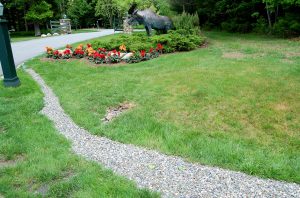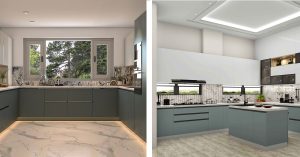There’s tremendous interest from American homeowners in making their living spaces healthier, safer and more resilient, but many are holding off on starting projects, according to home improvement platform Houzz in its latest survey.
“One in seven homeowners has put their home renovation project on hold (15%),” according to results from its online survey published September 6. “Faced with inflation and rising interest rates, many homeowners have been forced to reevaluate their ability to pursue immediate improvements,” commented the firm’s staff economist Marine Sargsyan in the survey summary.
Contributing Factors
Many homeowners prefer home renovations to moving, the survey stated, with nearly two-thirds of respondents wanting to stay put rather than buy a newer home that fits their needs (63%). Renovating is more affordable and a better return on investment (22% and 21%, respectively), respondents shared, and being locked into mortgage rates much lower than those available now influenced close to a fifth of respondents (19%).
For homeowners with the luxury of time – e.g., those who do not have to address a pressing need like adding wheelchair-friendly features after an unexpected permanent injury – waiting out skyrocketing borrowing costs on home improvement loans and inflationary home improvement products becomes both possible and appealnig.
Delay’s Silver Lining
Sargsyan pointed out, “As homeowners choose to remain in their aging homes rather than move, they continue to turn to industry professionals for assistance with necessary repairs and discretionary projects that improve their quality of life.” Many of these pros are exceptionally busy, with months-long waiting lists to take on new clients.
“Nearly half of projects planned for 2023 have a budget of over $30,000 (48%), and one in five projects has a budget of $100,000 or more (21%),” the survey reports. These are substantial sums, which high borrowing costs and DIY mistakes can make even more economically painful.
Kitchens and bathrooms in particular typically entail multiple home systems, including ventilation, electrical and plumbing. These tend to be complex, involve updated building codes, impact resale value (and safety), and are not necessarily beginner friendly.
For homeowners who already completed their projects this year, 45% reported major challenges finding the right professionals, according to the survey. Waiting to start a project makes it possible for homeowners to secure the services of their first-choice contractors and designers.
Finding pros with experience designing accessible spaces or projects for those with cognitive issues, neurodivergence or allergies and sensitivities makes the search harder, longer and potentially more costly.
Potential Wellness Projects
What type of features will these deferred projects likely include? According to numerous industry association trend studies, homeowners wanting to remain in their homes rather than move are opting to enhance bathroom safety with zero barrier shower entries, built-in benches, hand-held heads that allow for seated showering and improved ventilation to prevent mold. They’re enhancing health in those spaces with steam showers and saunas, both of which are growing in popularity, along with bidet functionality for their toilets. Kitchen health and safety projects include selecting induction cooktops and ranges over gas, improved cooking ventilation to improve indoor air quality, and nonporous quartz and porcelain countertops. Resilience projects include adding battery storage to solar systems and opting for porcelain floors, wainscoting, roofing and exterior cladding.
Follow me on Twitter or LinkedIn. Check out my website or some of my other work here.
Read the full article here














